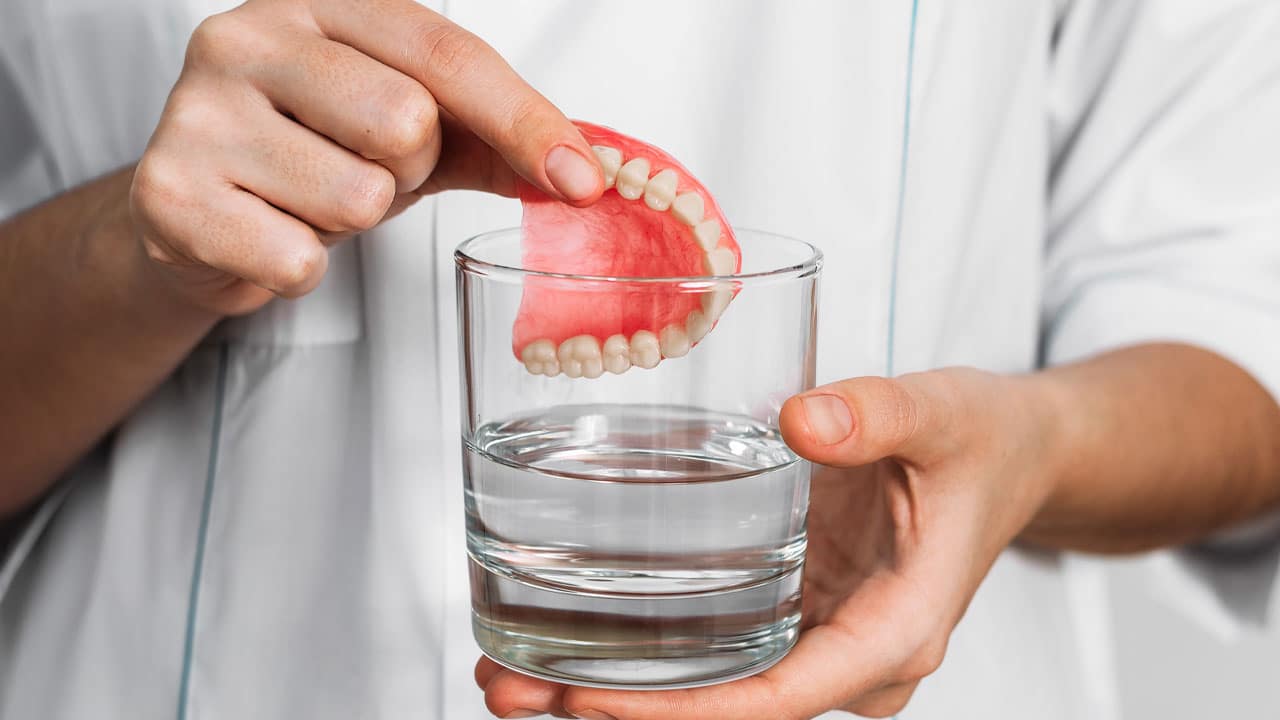
A denture reline is a procedure used to adjust the fit of a denture plate. It may be needed if the denture feels loose or the patient experiences discomfort when wearing it.
The reline process generally involves taking an impression of the denture and creating a new liner out of a soft material that will fit snugly against the plate. The new liner is inserted into the denture, and the fit is checked.
Discover why you may need a denture reline and learn about the various types of relines available with Smile On Dental Salon & Sleep Apnea Center.
Why Do You Need a Denture Reline?
Bones lose density and become weaker with age. This can lead to bone resorption, which can cause your teeth to loosen and eventually fall out. This resorption can also cause the jawbone to shrink and change shape over time, making it difficult for dentures to fit properly.
A denture reline can help correct fit issues by reshaping the denture and adding new layers of acrylic to the inside. It can also help to slow down or stop bone resorption, which can preserve the structure of your jawbone and keep your dentures in place.
Types of Denture Reline
If your dentist has prescribed a denture reline, they can help you choose the right type to support your oral health. The three types of denture relines include:
Soft Denture Reline
A soft denture reline is a process of adding a medical-grade soft polymer material to the inside surface of an existing denture to improve the denture’s contact with the hard and soft tissue in the mouth.
Soft relines are ideal for patients with sensitive gums or those who develop friction sores between the plate and gum tissue. It will last for a year or two, depending on how often the denture is worn and how well it fits.
Hard Denture Reline
A hard denture reline involves removing some of the plastic material inside the denture, which is replaced with a hardened resin. This material is much firmer than the soft liner used in a soft denture reline and provides more stability. The reline is usually only used if the denture is still in good condition and does not need replacement.
It provides a long-lasting solution for relining dentures without a completely new fitting. You should get a hard reline every two years if you have full dentures.
Temporary Reline
A temporary reline is a material put into the denture to help reduce inflammation in the gums. It is used when the patient first gets their denture, and the gums are sore. It usually lasts a few weeks until the patient returns to the dentist.
Denture Relining Procedure
After assessing your mouth to identify areas of irritation, your dentist sands off areas of the denture that are causing inflammation. They then clean the denture and apply a bonding agent to the surface.
Your dentist applies a soft or hard relining material to the inside of the liner, then places the denture back in your mouth, and you’ll bite down to make an impression. Once the liner material has hardened, it will create a new, custom-fitted liner for the denture. This liner will fit more snugly against the gums and keep the denture in place.
While many hard denture relines can be completed in a single appointment, sometimes your denture may need to be sent to the dental lab for liner fabrication. This means you may be without your dentures for several days.
Achieve the Perfect Denture Fit
Properly fitted dentures are vital for your comfort and your oral health. If you are experiencing discomfort or if your dentures no longer fit correctly, book an appointment for a reline at Smile On Dental Salon & Sleep Apnea Center.
